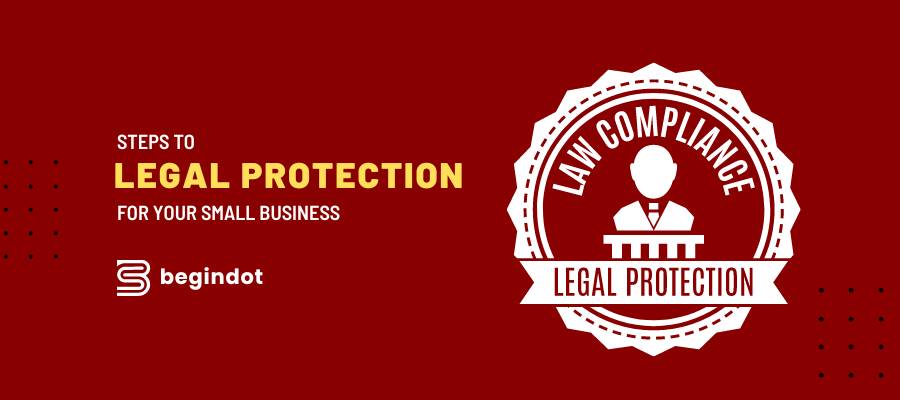As a small business owner, you’ve got a lot on your plate. From managing employees and keeping your finances in check to constantly seeking out new opportunities for growth, it can be tough to find time to focus on the less glamorous aspects of entrepreneurship. But there’s one area that you can’t afford to ignore: legal protection.
After all, you’ve worked hard to build your company from the ground up, and the last thing you want is to see it all come crashing down due to a lawsuit. So how can you safeguard your small business and avoid getting sued? Here are five tips to keep in mind:
Tip #1: Get insured
First things first: make sure you have the right insurance coverage for your business. This can include liability insurance to protect against accidents or injuries that occur on your property, property insurance to cover any damage to your physical business location, and even cyber insurance to protect against online threats like data breaches or ransomware attacks.
There are many different types of insurance that may be relevant for your small business, depending on your industry and specific needs.
It’s important to do your research and choose coverage that makes sense for you. And while insurance may seem like an extra expense, it’s a small price to pay compared to the financial devastation that a lawsuit or major incident could bring.
Tip #2: Protect your intellectual property
Your ideas and creations are what set your business apart from the competition. So don’t let anyone steal them! If you have products or services that are unique to your business, be sure to take the necessary steps to secure trademarks, copyrights, and patents for them.
This can help prevent others from infringing on your intellectual property and can give you legal recourse if someone does try to steal your ideas.
Trademarks protect your brand and logo, copyrights protect creative works like writing or art, and patents protect inventions.
Each of these types of intellectual property has its own set of rules and requirements, so it’s important to do your research and understand the process for securing them.
For more information on this, check out this intellectual property primer by the U.S. Chamber of Commerce. You may also want to consider working with an intellectual property lawyer to ensure that your rights are protected.

Tip #3: Draft solid contracts
A well-written contract can make all the difference in the event of a dispute. Whether you’re hiring employees, entering into a partnership, or working with clients, be sure to clearly outline the terms and conditions of your agreements in writing.
This can include things like payment terms, duration of the agreement, and any warranties or guarantees.
It’s also important to include provisions for what happens if something goes wrong, such as how disputes will be resolved or how the contract can be terminated.
For example, having a well-organized offboarding process can help ensure that everyone leaves on the same page and avoid any potential legal issues down the line.
And don’t forget to have a lawyer review the contracts before signing them to ensure that your interests are protected.

Tip #4: Stay compliant
Ignorance is not an excuse when it comes to the law. Make sure you’re up to date on all the relevant regulations and requirements for your industry and follow them to a T. This includes things like obtaining any necessary licenses or permits, paying taxes, and following labor laws.
Failing to follow the rules can result in costly fines or legal action, and it can also damage your reputation. Stay on top of changes in the law and make sure you’re in compliance at all times.
It’s also a good idea to work with a lawyer or accountant who can help you navigate the legal and financial aspects of your business.
Tip #5: Know your rights
As a small business owner, it’s important to be aware of your legal rights. This includes things like the right to a fair and discrimination-free workplace, the right to privacy, and the right to fair competition. Knowing your rights can help you stand up for yourself and your business in the event of a legal dispute.
It’s always better to be proactive rather than reactive, so familiarize yourself with your legal rights as a small business owner. This can include doing research and consulting with a lawyer or other legal professional.
And if you feel like your rights are being infringed upon, don’t be afraid to seek help. Having a legal professional on your side can give you peace of mind and help you navigate tricky situations.
Conclusion
In conclusion, protecting your small business from legal issues doesn’t have to be a daunting task. By following these five simple steps, you can sleep easy knowing that your business is safe and sound.
And with one less worry on your plate, you’ll be free to focus on what you do best – running and growing your company!





